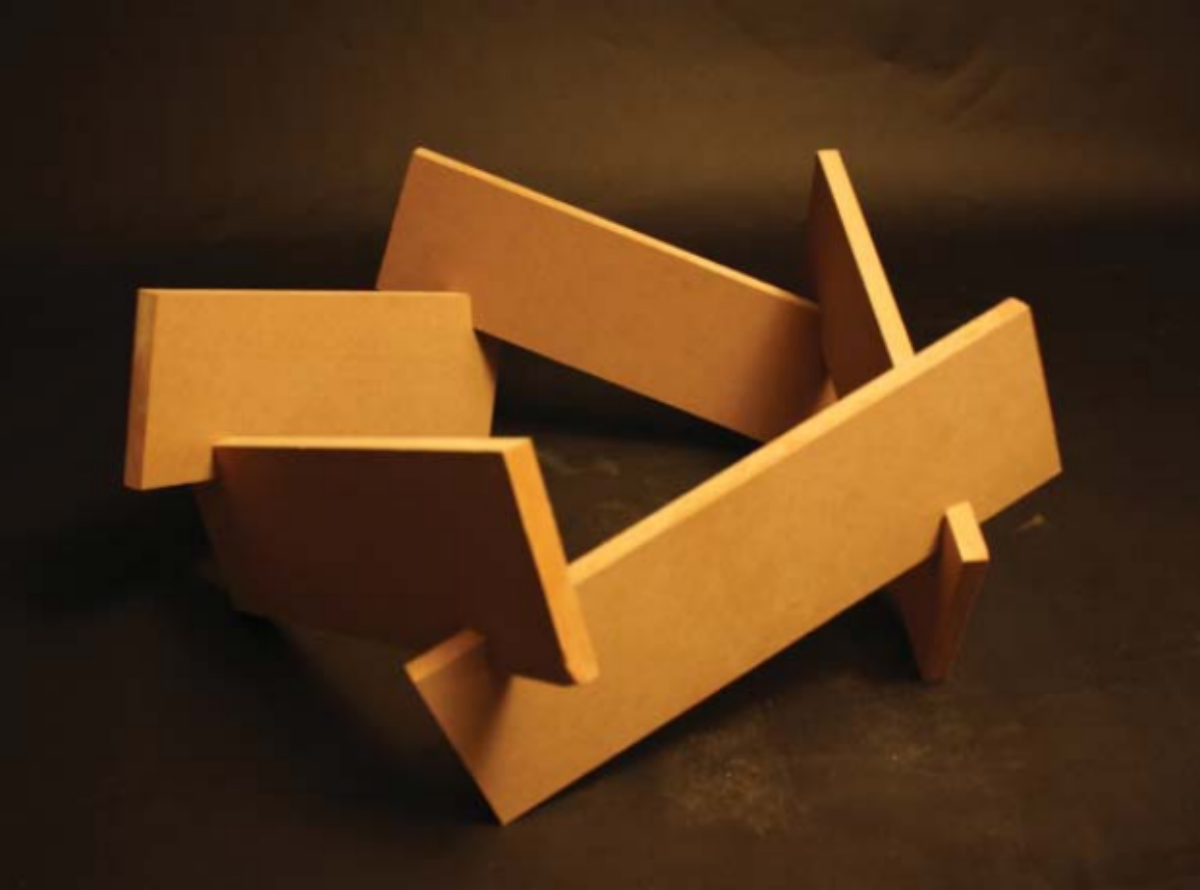Mass Customization of Reciprocol Frame Structures: Digital Optimization and Robotic Manufacture

RF aggregation variations depending on engagement length
by Ana Garcia Puyol (MDes ’14)
This thesis focuses on the creation of a digital workflow that uses computational design tools to automate the generation of planar reciprocal frame (RF) structures. This research work covers the structural behavior of linear members present in conventional reciprocal frames and develops those designed with planar elements. While similar elongated bars are populated over a surface on the first, local material differentiation of the framework is introduced in the latter by reading the results of an overall structural analysis of the assembly and a multiple load-case study of each member. The boards can be mass-customized according to their position and function within the structure. Strategies for visual comfort are also presented. Designed using optimization algorithms, RF structures incorporate notching techniques to accomplish joinery, minimizing the use of custom metal connections. The three-dimensional nature of the intersections between members is conceived computationally taking into consideration the constraints of the fabrication process, where the elements are manufactured by means of a six-axis robot.